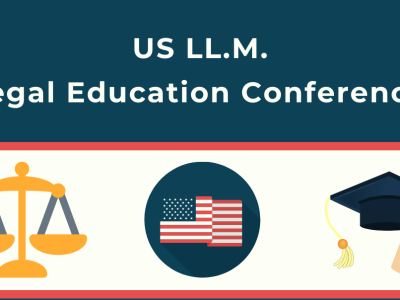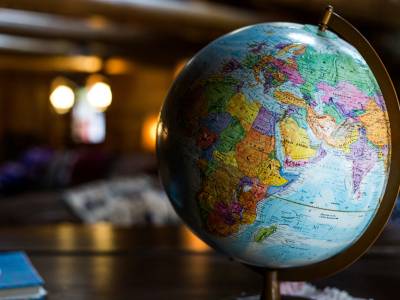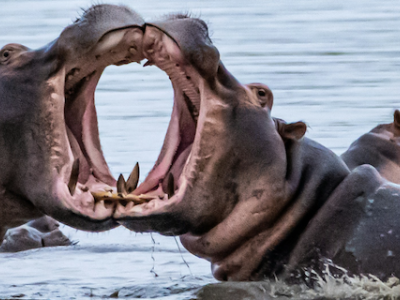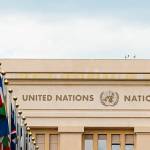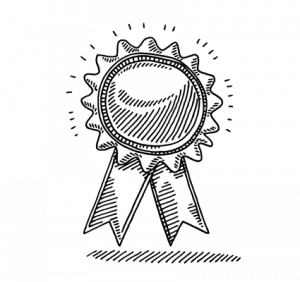With no less than three different countries sending missions to Mars in February 2021, NASA’s Artemis program prepping for astroboots on the moon almost 50 years after the last man walked on its surface, and private companies like SpaceX itching to colonize Mars, space exploration is expanding at a clip not seen in half a century.
And where science and business go, their lawyers inevitably follow.
“Space business is increasing,” says Ram S. Jakhu, associate professor and acting director of McGill University’s Institute of Air and Space Law, one of only a handful of universities worldwide that offer an LL.M. in Space Law.
“Telecommunications, weather, 99 percent of all that comes from space. Forest fires can be fought via space. Lots of security companies, like banks or electric grids, depend on space, so space business is a lot larger than you think,” says Dr. Jakhu.
And critically, all of these companies require experts to advise them on issues such satellite licensing or to draft their contracts.
Furthermore, as the technology hurtles forward, both public and private entities need legal specialists to design new laws and update old ones.
“So if you want to have an exciting profession with jobs that will keep increasing, come on over,” says Dr. Jakhu, who heads one of the oldest air and space law programs in the world, established in 1963.
Dr. Jakhu believes that space law has not kept up with the recent developments, especially with regard to space debris and the exploitation of natural resources in other planets and the moon.
“The question is, who can go and exploit – mine – there, what are the regulations regarding ownership of these resources, as well as the question of pollution. Because when you do mining, you create pollution,” says Dr. Jakhu.
He also believes that space debris falling back to earth will become a big issue in the future. “There is too much junk being put there, space debris. It is becoming a very serious matter, some of the pieces have started falling on earth.”
“To me this is just the beginning,” says Dr. Jakhu.
“A fascinating world”
About 25 students, mainly international, are admitted to McGill’s 12-month LL.M. each year, with the option of continuing to work towards a PhD and post-doctoral opportunities.
One of them is 25-year-old Sofia Stellatou, who has been attending classes remotely from Athens, Greece since September and whose dream job is being an in-house lawyer for a satellite company.
“It’s a fascinating world. You get an inside look in a world you couldn’t enter otherwise, or even understand, so you need space engineering knowledge as well. This is what I love, it’s so different,” says Stellatou, who fell in love with space law after taking part in a moot court competition as an undergraduate at Athens University.
The pandemic has put a damper on her LL.M. experience; she can’t meet her teachers or classmates in person and last semester she had a class that ended at 3am due to the time difference. But she says it’s still been a “very eye-opening” experience for her, especially the way the professors work closely with their students. She’s already lined up a Montreal-based internship after graduation.
Elspeth Magilton, the executive director of the University of Nebraska’s Space, Cyber, and Telecommunications Law program says the most important skill to success is writing – “writing, writing, and more writing.”
She warns that while the space law field is new and growing, it’s still small.
“Most students need to get legal experience and cut their teeth in adjacent fields before they’re fully able to pivot to space law. Great fields to gain experience in are transactional business, international law, economics, and national security,” says Magilton.
An hour’s drive from Offutt Air Force Base and part of a University Affiliated Research Center with US Strategic Command, the University of Nebraska offers both an online and in-person LL.M. and has a number of active-duty students. It also offers the only doctoral-level space law degree in the United States.
“We’re seeing a renewed and increasing interest in commercial space, our civil space programs, and of course military space initiatives,” says Magilton, who also produces the university’s Tech Refactored podcast, which explores the evolving dynamics between technology and the law.
Since the lines between these different spheres continue to blur, Magilton says, the Nebraska program has developed a holistic approach to space law. Students on the LL.M. are required to take international space law courses, as well as classes on the satellite industry and telecommunications law.
The ever-evolving field of space law
The fact that the laws overseeing space were not set in stone was what attracted Dr. Tanja Masson-Zwaan, assistant professor and deputy director of the International Institute of Air and Space Law at Leiden University, to space law when she was a student.
Now, as a professor she says that is still the case, because what she taught even ten years ago is vastly different to what she teaches today.
“So much is happening, so much is changing. There are new topics, new actors, that always bring up new legal questions - like the issues of congestion, space security, the political tensions with respect to weaponization, the military use of space, and the general concept of long-term sustainability, that we have to use outer space while preserving it, to make sure that future generations can also still benefit from it,” says Dr. Masson-Zwaan.
Because it is in such flux, at Leiden she says she tries to teach both the existing law but also seeks to expose students to many guest speakers, including alumni mentors working in the industry for her two dozen students. An internship is a critical part of the yearlong program, as well as field trips to Vienna, where international space law is made and the United Nations Committee on the Peaceful Uses of Outer Space is based.
She says her students are getting more jobs and internships in space law than they used to.
“Now the startups are realizing that they need an in-house lawyer who knows contracts and space law, that it’s good for their business – they might need to interact with the government to get a license or insurance, so I see the students making their way in that business much more than before,” says Dr. Masson-Zwaan.
“I am convinced we are going to be living on other planets and we will need rules and clarity and certainty about that.”
“Lonely Galaxy Lost in Space”/ CC 2.0 by NASA Goddard Photo and Video (cropped)
-58196.jpeg)
